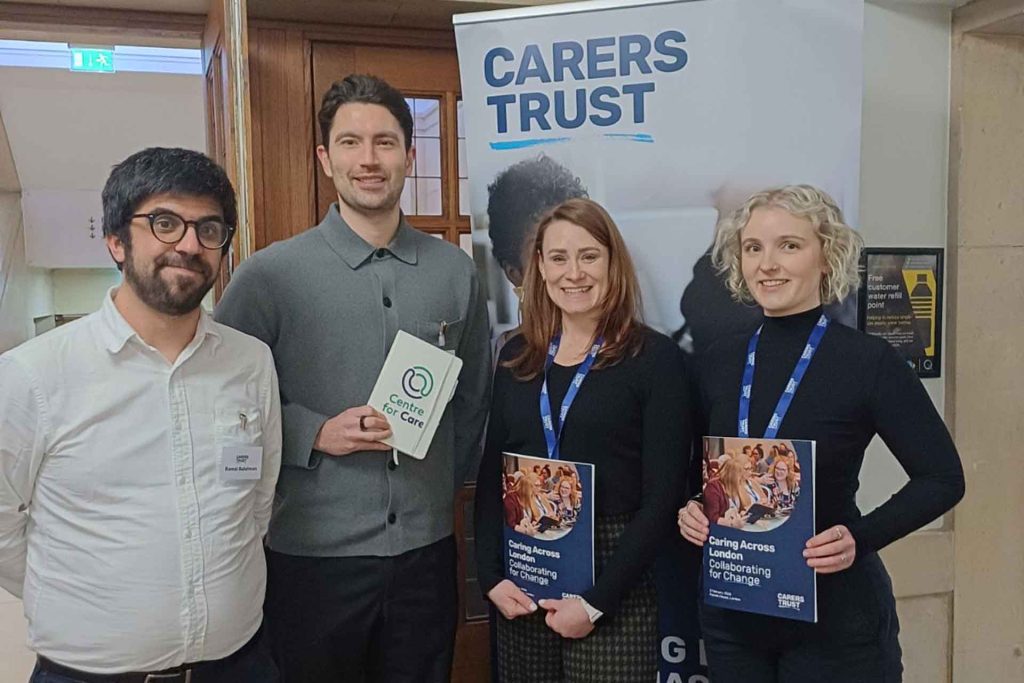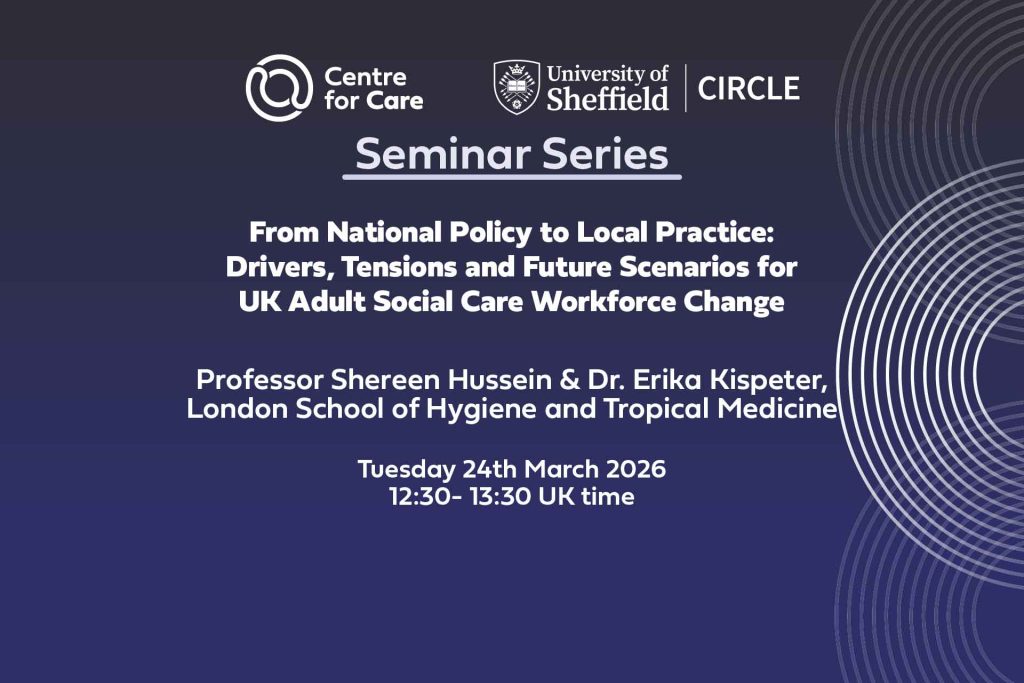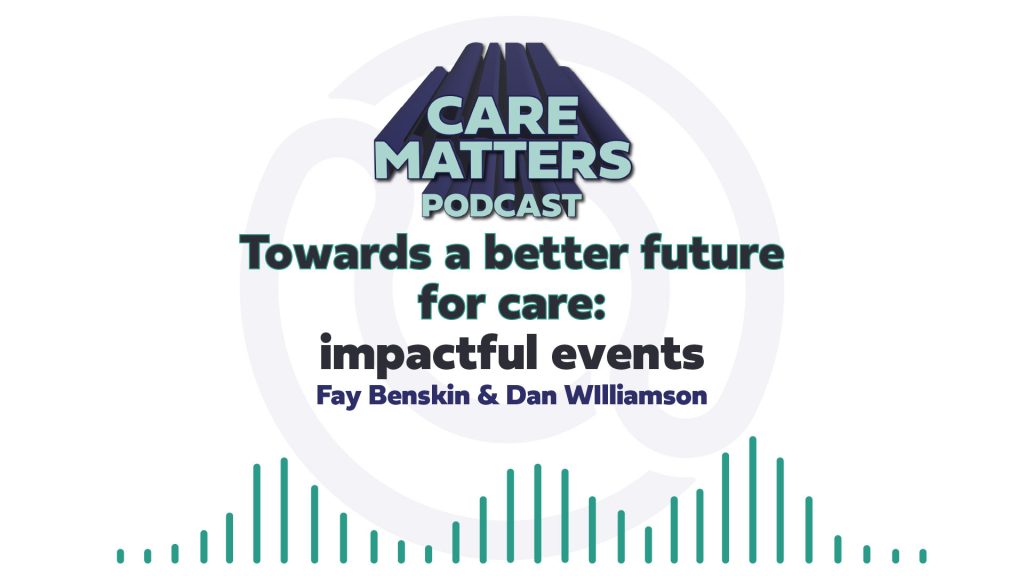Navigating practitioner-academic research in Local Authorities
by Charlotte Ashworth (MA Social Research student / NIHR Pre-doctoral Local Authority Fellow)
I have worked for Manchester City Council in frontline child protection teams since I qualified as a social worker over ten years ago.
Social workers are expected to have an incredible range of knowledge and skills to fulfil their roles, including advanced communication skills to work with families with learning disabilities, and non-verbal children, to being able to write formal court reports, care plans and assessments. Multi agency work can be really challenging when there are disagreements about child and family plans and care planning, often driven by high levels of professional anxiety, resulting in risk-averse and defensive practice. Social workers have to be incredibly knowledgeable and skilful when managing these complex dynamics.
Frontline practice has been especially challenging in the era of austerity when need for services is increasing and resources have dwindled. These pressures were further exacerbated by the Covid-19 pandemic which placed significant additional pressure on social workers, who had to adapt to new ways of working while continuing to support vulnerable individuals and their families and manage risks to their own health. There have been recent reports in the press that social workers have experienced the worst pay growth in the UK over the past decade [1] and are quitting in record numbers in England [2].
It was against this backdrop that I applied for a National Institute of Health and Care Research (NIHR) Local Authority Academic Fellowship [3]. The aim of the funding programme is to expand research capacity within local authorities by funding training in research skills for local authority staff. The development of “practitioner-academics” and further funding opportunities will be crucial if local authorities are to become more research active and, by extension, deliver better services.
The NIHR local authority academic fellowship programme mirrors existing NIHR clinical academic fellowship programmes and clinical-academic roles have been established and are expanding in healthcare over the last decade [4] [5].
Local authority “practitioner-academics” are able to use their experience to carry out research relevant to local authority service delivery and promote evidence-based practice within their settings. As a practitioner, I had often found myself asking questions, trying to find research-informed answers and struggling to find them. There is so much practical knowledge on the frontline, but the pressures of child protection work, turnover of staff, and the lack of a career pathway, has meant that there has been little opportunity to capitalise on this knowledge.
Under the Local Authority Academic Fellowship programme, I was part of the first cohort of Pre-doctoral Fellows [6]. The fellowship supports Masters level research training and a personal, tailored training and development plan which is completed in protected, salaried time. Being able to stay with my local authority whilst continuing with further study took away all the barriers which had previously prevented me from returning to academia after completing an MA in Social Work 11 years ago. As part of the learning and development programme, I am completing an MA in Social Research with the Sheffield Methods Institute. This programme has really helped me to improve my knowledge of research design and learning skills to carry out qualitative and quantitative research. My academic supervisor Dr Michaela Rogers [7] and mentor Prof Parveen Ali [8] have been really encouraging and patient during my pre-doctoral fellowship and have supported me to develop my PhD proposal and NIHR funding application, a key output of the pre-doctoral fellowship.
Practitioner Research
During the MA Social Research, I have had the opportunity to carry out practitioner research in my own organisation. The short project explored child protection social work practice during the Covid-19 pandemic, using social workers’ personal experiences and reflections on their practice during. I used two qualitative research methods – a focus group and semi structured interviews with social workers in frontline child protection teams.
I had a working relationship with all of the participants, including previously line managing a couple of the participants. The advantages of recruiting participants in my workplace was familiarity with the setting and my ability to capitalise on access to frontline workers within my organisation, which can be a barrier to other social researchers [9].
However, the recruitment of participants from my own workplace meant that I needed strategies to manage my “insider” approach. Alongside providing a comprehensive information sheet, I also had a verbal discussion with each participant regarding the purpose of this project and my dual role as a “practitioner-academic” supported by the National Institute for Health Research, Manchester City Council and The University of Sheffield. I emphasised that participation was completely voluntary and there would not be any positive or negative consequences to taking part. I felt that it was important to stress this as I remain a team manager in my organisation and I did not want participants to either feel obliged to take part, or that taking part would result in future favouritism in the workplace.
Even with informed consent, I was aware that my presence could still likely influence participants’ behaviour and willingness to share information if they thought it might adversely affect them in the workplace. However, on listening back to the recording, I was reasonably reassured that the participants did not seem inhibited in discussing drawbacks of some of the adapted practice. In fact, participants in the focus group were quite open about disregarding and ignoring some of the Covid-19 general guidance when it was felt this conflicted with their own values and ethics regarding fair assessment and, importantly, seeing vulnerable children face to face.
I found myself asking participants to explicitly state information which they had reasonably inferred I already knew. I found that a couple of the participants used the word “obviously” repeatedly, however I wondered how obvious some of the information and perspectives expressed would be to an outsider. Similarly, I was struck by the number of times participants in the focus group laughed together when they were sharing their experiences and perspectives, which I think underlines the usefulness of insider approaches, where open discussion can be established fairly quickly. Participants may have been more guarded with someone they considered an outsider [10].
There were two main findings which departed from the existing literature on child protection practice during the pandemic. The first was focus group participants discussing that they had continued to visit children and their families face to face, even in the early stages of the pandemic and against advice at the time. Several references in the transcript emphasising the necessity of face-to-face visits for safeguarding purposes and acknowledging that this was a departure from advice, and increased their own risk of contracting Covid-19. The other striking finding was the participants’ positive emphasis (expressed as “pride”) on the value of social work and continuing to do their job under difficult circumstances.
This project was a good opportunity to hone qualitative research skills and experiment with carrying out practitioner research within my own organisation. I have co-authored a paper based upon this project with Nick Burke [11], who is also a social worker, University Teacher and NIHR Pre-doctoral Fellow. We presented this paper at the European Conference for Social Work Research (ECSWR) 2023 in Milan, Italy and it was subsequently published in the British Journal of Social Work (REF). The success of this project led to my decision to base my proposed PhD research project within my own organisation, although I will draw upon qualitative and quantitative data in a mixed-methods research design. Despite challenges and pressures within my profession, I am hopeful that recent emphasis on local authority research and increased funding opportunities will encourage social workers to carry out meaningful, impactful research and make important, novel contributions to existing social research literature.
Links and references
[1]https://www.communitycare.co.uk/2023/02/24/40-rise-in-number-of-social-workers-quitting-childrens-posts-over-past-five-years/[4] Newington, L., Alexander, C.M. and Wells, M. (2022) ‘What is a clinical academic? Qualitative interviews with healthcare managers, research‐active nurses and other research‐active healthcare professionals outside medicine’, Journal of clinical nursing, 31(3-4), pp. 378–389. doi:10.1111/jocn.15624.
[5] Olive, P. et al. (2022) ‘Clinical academic research internships: What works for nurses and the wider nursing, midwifery and allied health professional workforce’, Journal of clinical nursing, 31(3-4), pp. 318–328. doi:10.1111/jocn.15611.
[7]https://www.sheffield.ac.uk/socstudies/people/academic-staff/michaela-rogers
[8]https://www.sheffield.ac.uk/health-sciences/people/nursing-and-midwifery/parveen-ali
[9] Vaswani (2018) “Learning from failure: are practitioner researchers the answer when conducting research on sensitive topics with vulnerable children and young people?” International Journal of Social Research Methodology
[10] Taylor, S.J. (2016) Introduction to qualitative research methods: a guidebook and resource. Fourth edition. Hoboken, New Jersey: Wiley.
[11]https://www.sheffield.ac.uk/socstudies/people/academic-staff/nick-burke
In 2023, Charlotte successfully applied for an NIHR Doctoral Fellowship, due to start in September 2023 and will be supervised by Dr Michaela Rogers and Prof Parveen Ali. Charlotte’s PhD research is a mixed methods study on the topic of child-to-parent violence and abuse. As part of the local authority fellowships, Charlotte remains employed by Manchester City Council to support the building of research capacity within the local authority.
More commentaries

Lucy Wood writes about the recent Carer’s Trust all day event – Caring Across London: Collaborating for change.
Read More about Carers Trust: Caring across London
We are delighted to virtually welcome Professor Shereen Hussein and Dr. Erika Kispeter from the London School of Hygiene and Tropical Medicine to present for us on 24th March 2026.
Read More about Seminar: From National Policy to Local Practice: Drivers, Tensions and Future Scenarios for UK Adult Social Care Workforce Change
Towards a better future for care: impactful events Fay Benskin and Dan Williamson discuss some of the key recent impact events which the Centre for Care have hosted and/or been involved in. They reflect on policy breakfasts at the House of Commons which focussed on Carer’s Allowance reform and the evidence in support of Paid […]
Read More about Podcast: Impact miniseries episode one
We are very pleased to launch our new impact report today, ‘Towards a better future for care’.
Read More about Towards a better future for care: Centre for Care Impact report (November 2021-April 2025)

